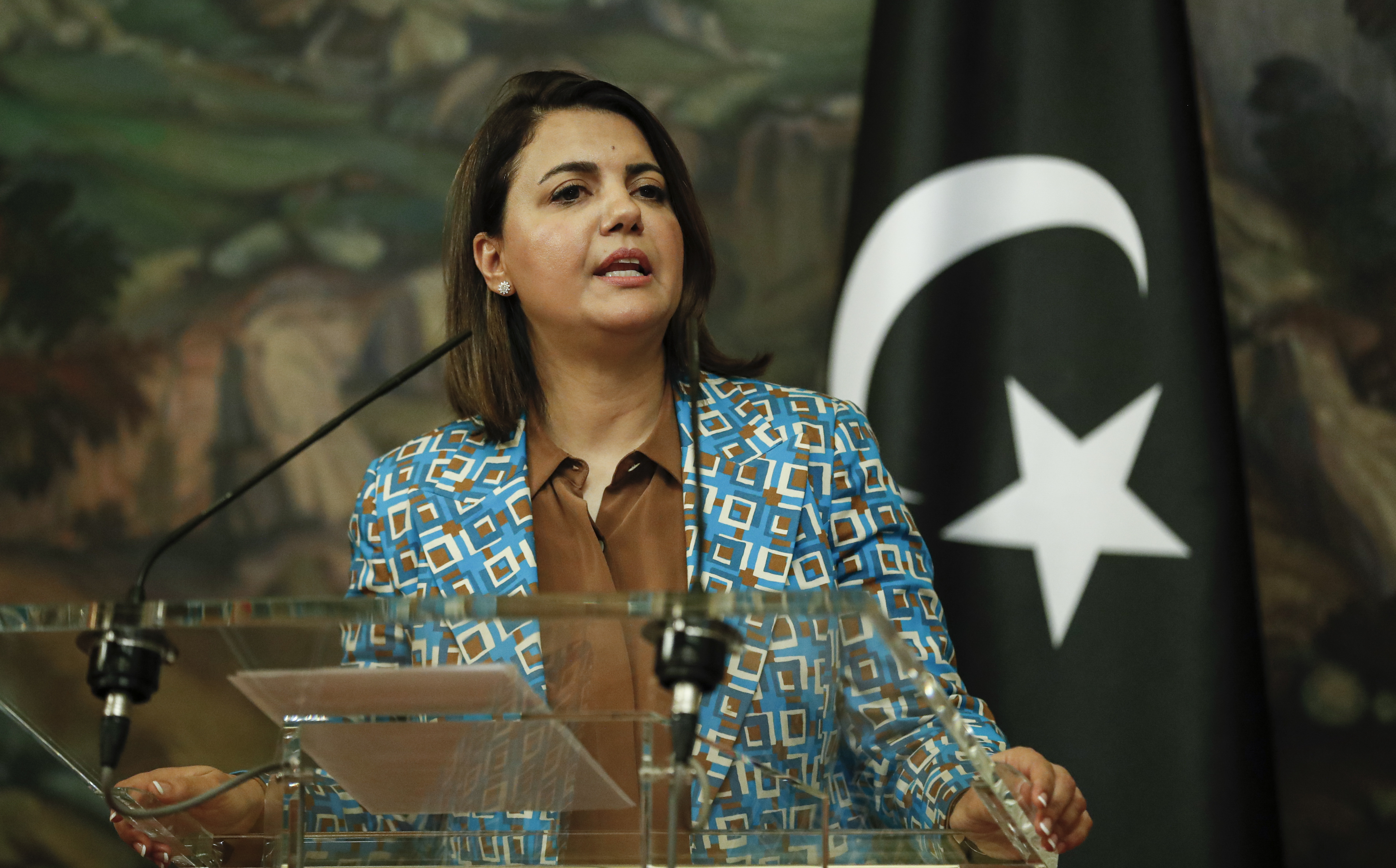
Libya’s internationally recognised prime minister has come under scrutiny for his reported role in attempting to normalise relations with Israel, analysts have said, with some calling for his dismissal.
Abdul Hamid Dbeibah, the head of the Tripoli-based Government of National Unity (GNU), sacked Foreign Minister Najla al-Mangoush after her meeting with her Israeli counterpart Eli Cohen in Rome last week was leaked to the media. She has since fled the country.
On Sunday evening, a statement from the Israeli foreign ministry said al-Mangoush and Cohen had discussed ways to have “great relations” between their nations.
The meeting sparked protests Sunday night in Tripoli and other cities, with demonstrators blocking roads with burning tyres and waving Palestinian flags.
Libya’s rival parliament in the east, which rejects the GNU, said on Sunday it would hold hearings into the meeting while the Tripoli-based Presidency Council asked Dbeibah for clarification and the High State Council, another important body, condemned it.
Scapegoat?
Under a 1957 law in Libya, it is illegal to have formal relations with Israel. Analysts say al-Mangoush has taken the fall for decisions made by Libya’s rival leaders, linking the meeting with the United States’s efforts to pressure more Arab countries to normalise ties with Israel.

Libya expert Anas El Gomati of the Sadeq Institute said Dbeibah, his rival military strongman Khalifa Haftar and the eastern-based parliament that backs him “have used Libya’s first female foreign minister as the fall person for decisions they all partook in”.
“It’s not about politics, it’s blatant scapegoating,” El Gomati told AFP.
Last January, Dbeibah met with US CIA director William Burns in Tripoli to discuss normalising relations with Israel, two Libyan officials told The Associated Press.
He gave initial approval for joining the US-brokered Abraham Accords but was concerned about public backlash in a country known for its support for the Palestinian cause, one of the officials said.
Omar Turbi, a former adviser to Libya’s transitional government after the overthrow of Muammar Gaddafi, said: “Dbeibah needs to go and he knows that he’s been under pressure in the last couple of weeks.”
Dbeibah is “squarely responsible” for the meeting, Turbi said, adding that the PM had met with the Israeli Mossad even before speaking to Burns, and “continued to do so with frequency”.
“The US should have better sense than trying to normalise a relationship between Libya and Israel,” he told Al Jazeera, describing Libya as “dysfunctional”.
Ammunition for Dbeibah critics
The dispute over the meeting has fed into Libya’s internal political crisis, giving further ammunition to Dbeibah’s internal critics at a moment when the future of his interim government was already in question.
Jalel Harchaoui, an associate fellow specialising in Libya at the London-based Royal United Services Institute for Defence and Security Studies, said Dbeibah “tried to play at diplomacy but failed because he did not evaluate correctly” the response of Libyans opposed to ties with Israel.
Harchaoui also said the meeting was spurred by pressure on Libya from both the United Nations and the US to push ahead with much-delayed presidential and legislative elections.
In Israel, Foreign Minister Cohen has been criticised for speaking about the meeting to the media, with the acting US ambassador to Israel communicating his government’s displeasure.
According to Israeli Channel 13, the US administration’s message, while restrained, has blamed Cohen for being at fault. Cohen, for his part, replied that Israel “understands the problem”, and that it will no longer express itself publicly on the issue.
The Israeli foreign ministry has attempted to distance itself from being behind the leak, but documentation obtained by Channel 13 from a gathering of hundreds of foreign ministry employees showed Cohen bragging: “I have an excellent volunteer, half an hour ago she helped me write a message to the minister. A minister or foreign minister, I can’t exactly specify, from a significant Muslim country with which we have no relations.”







